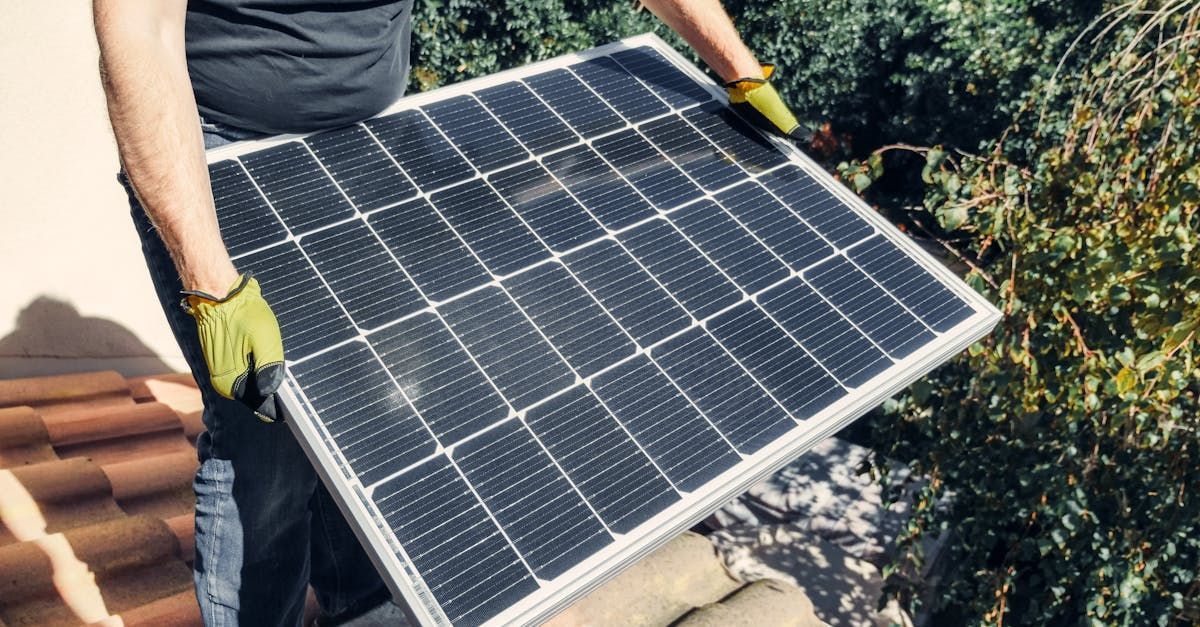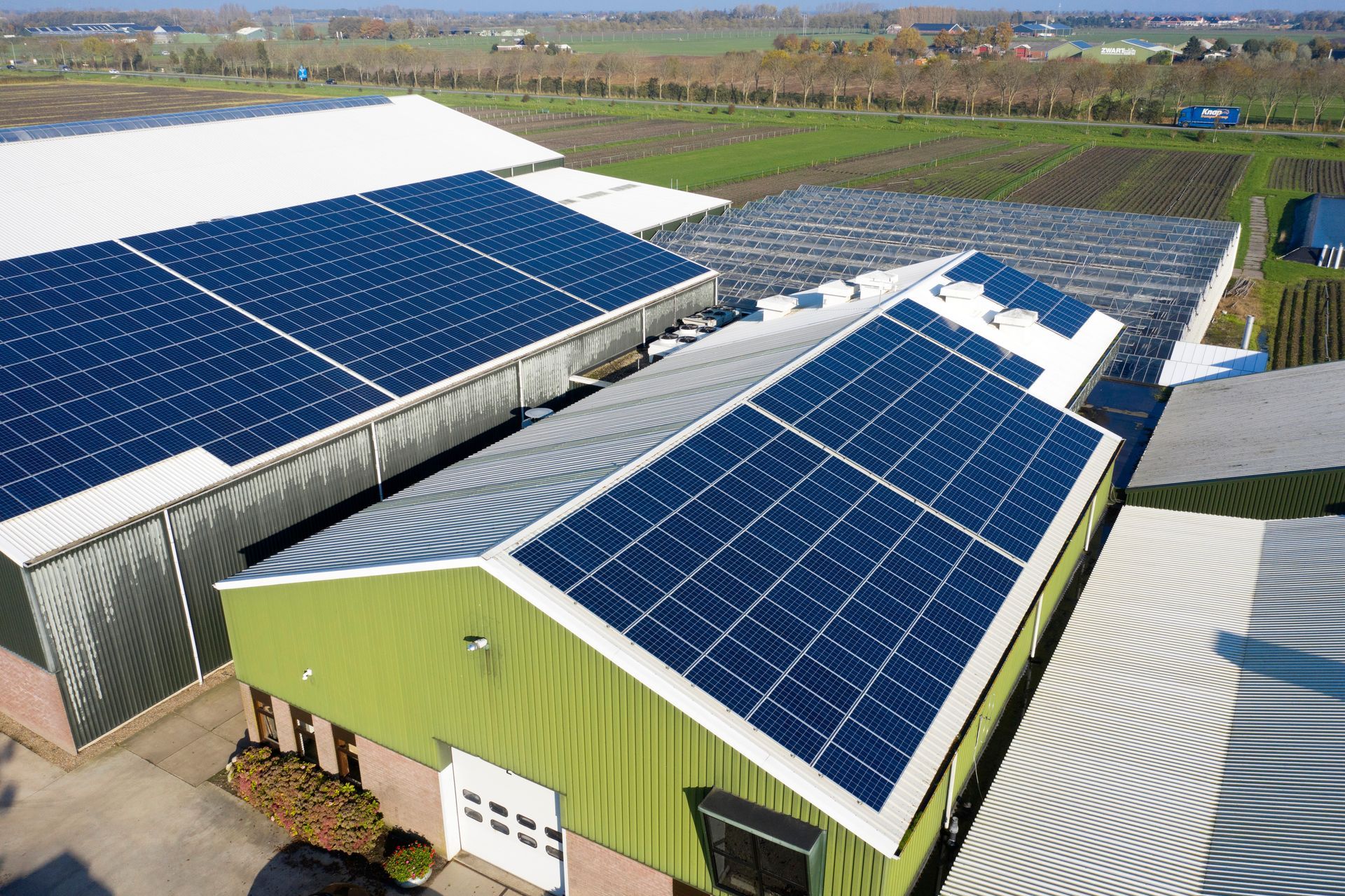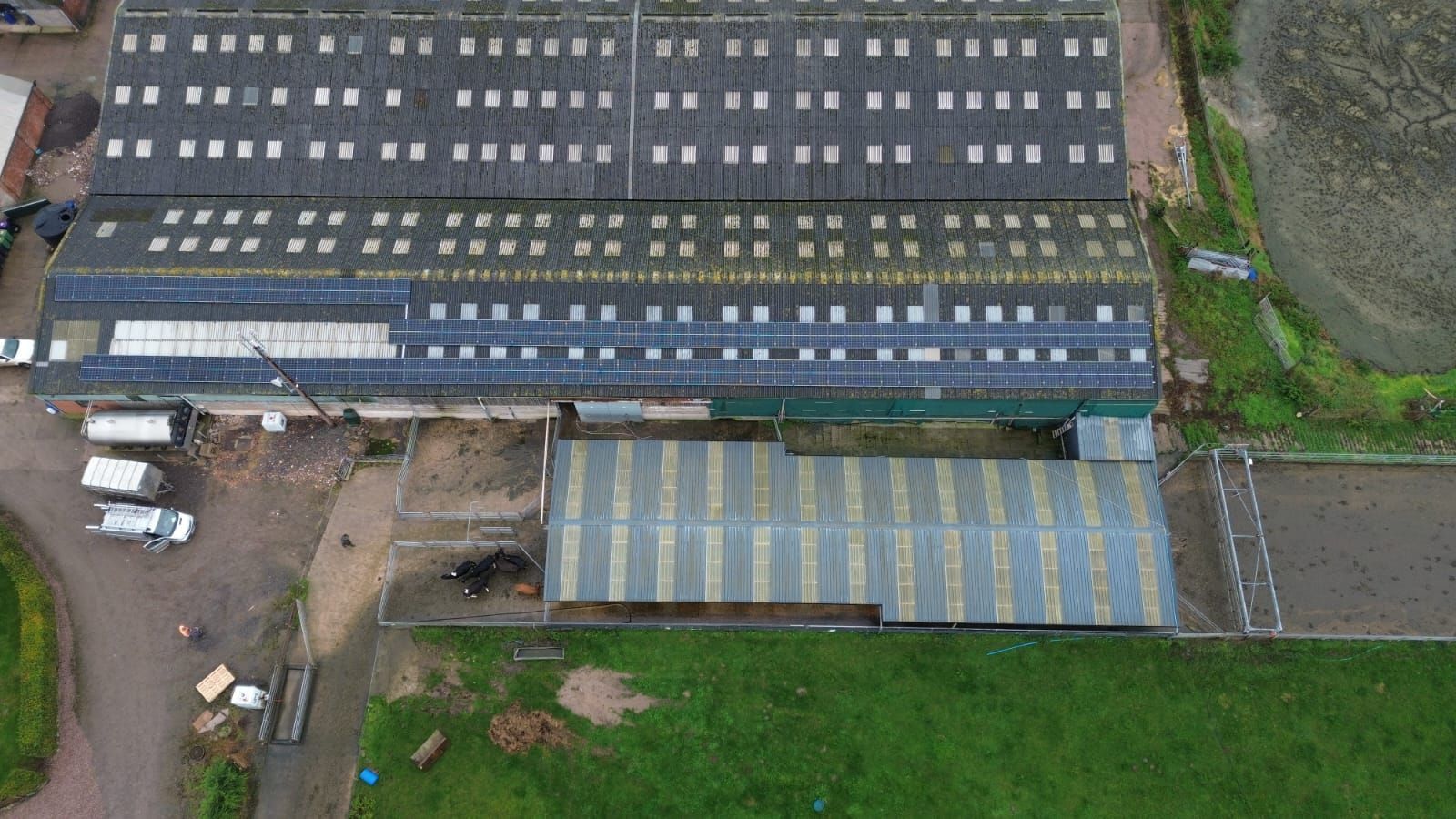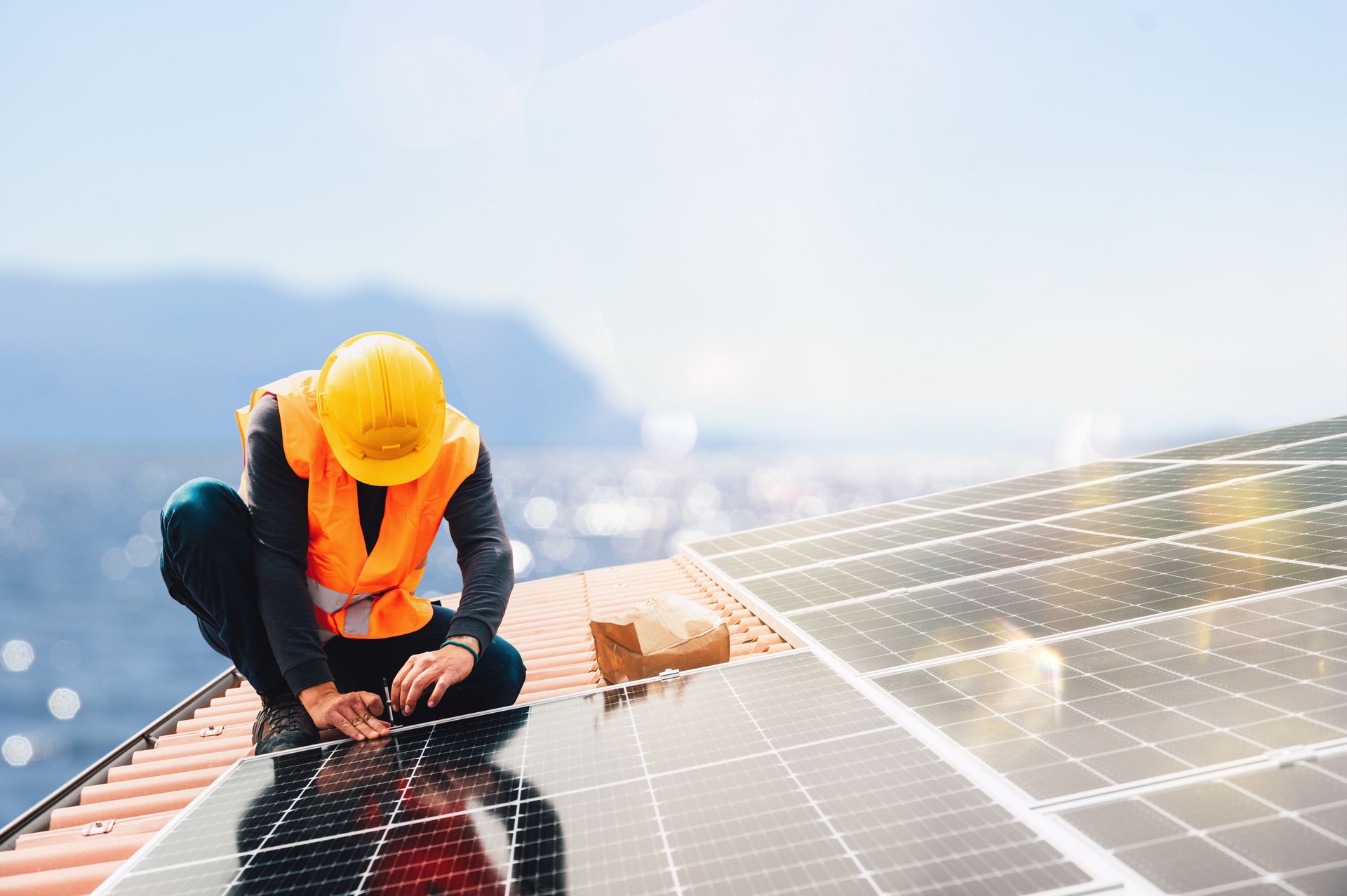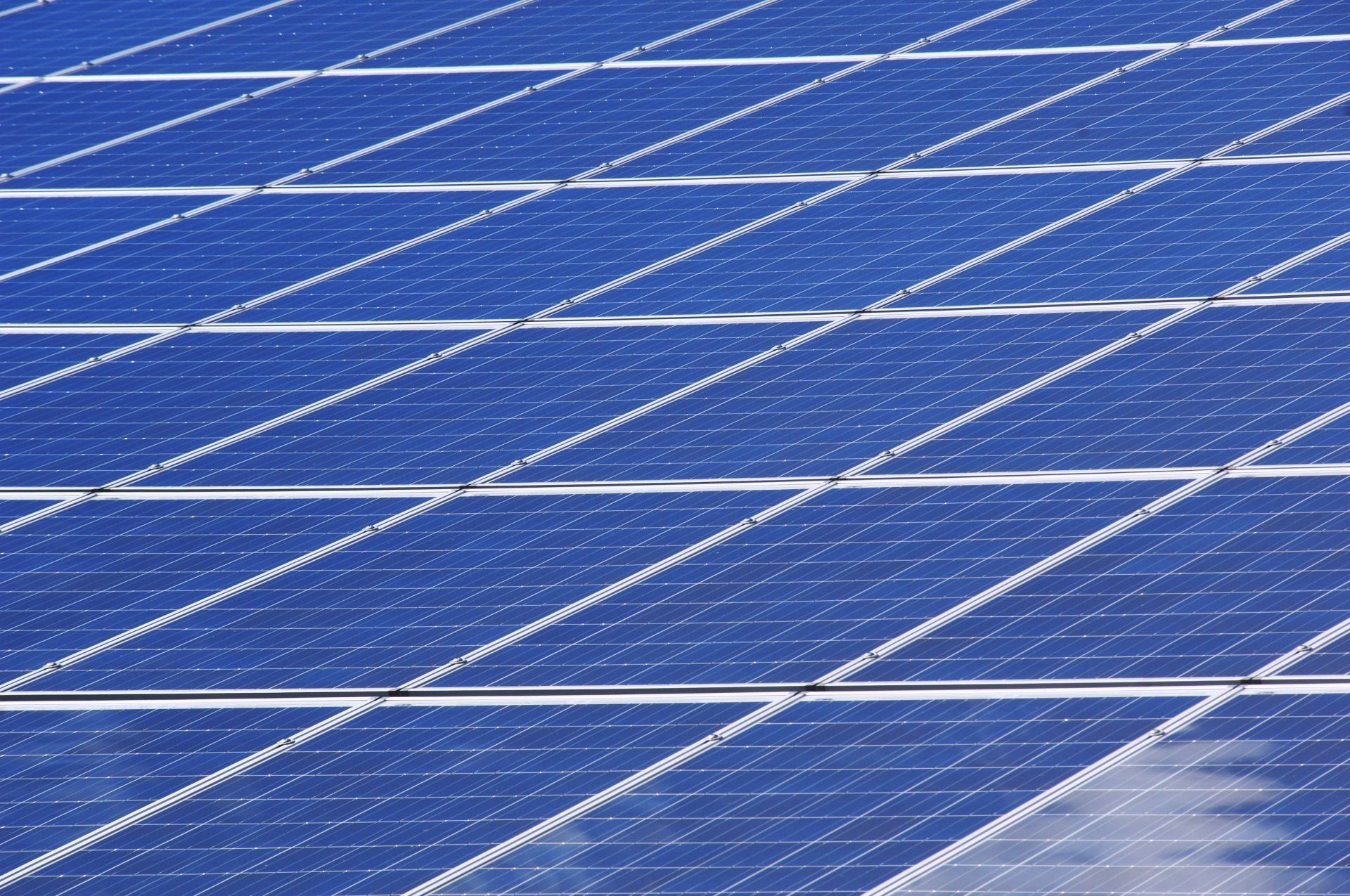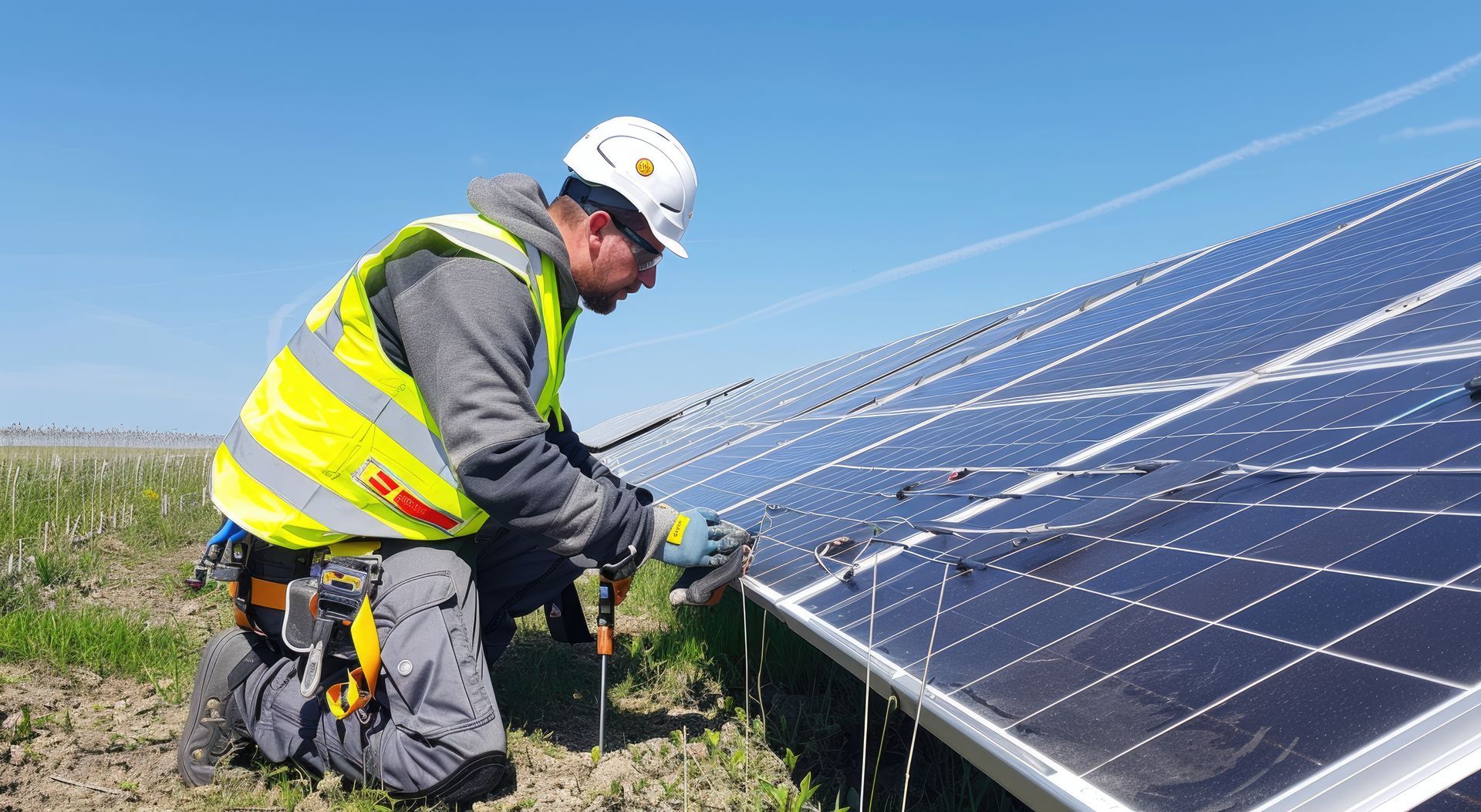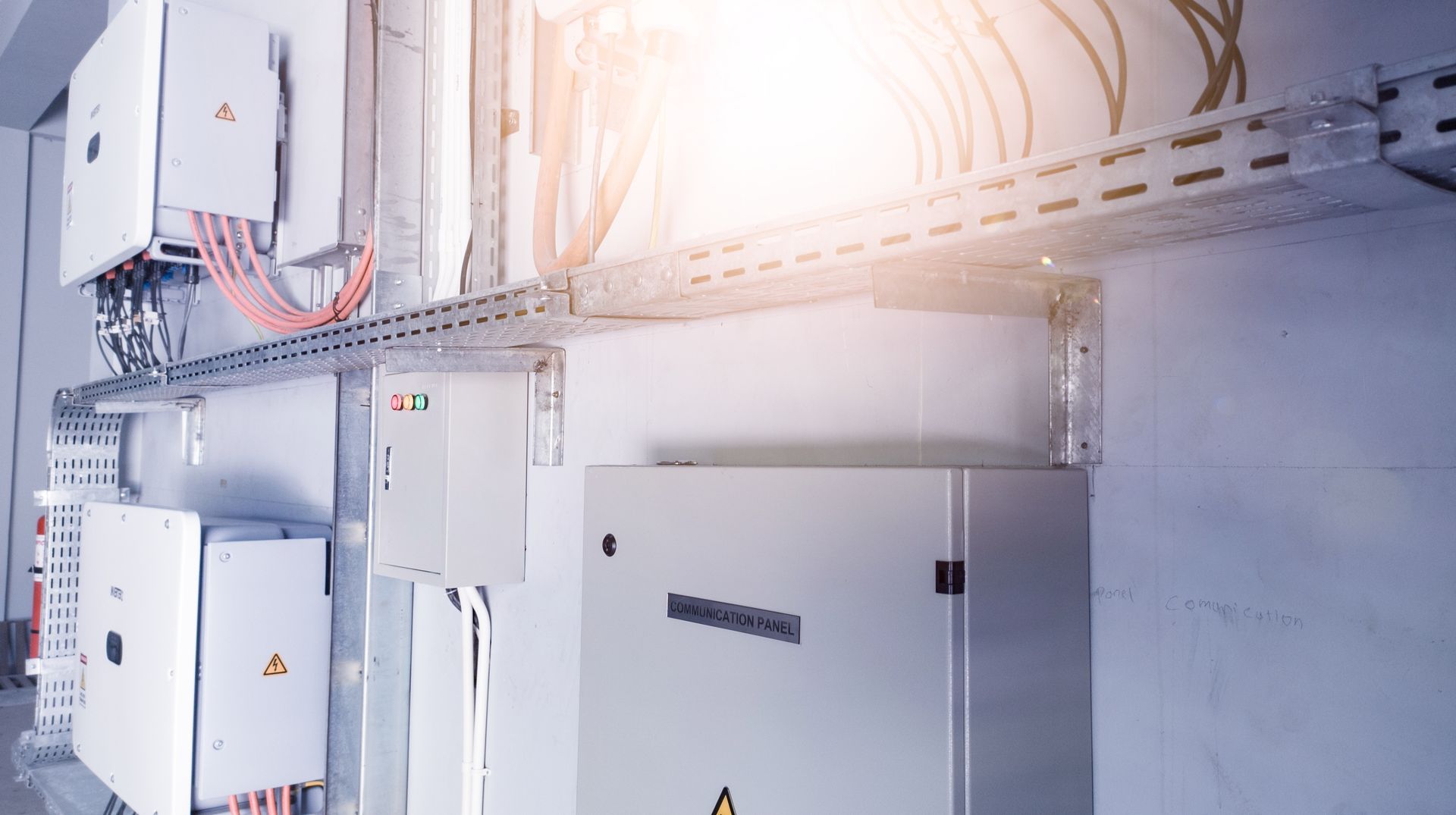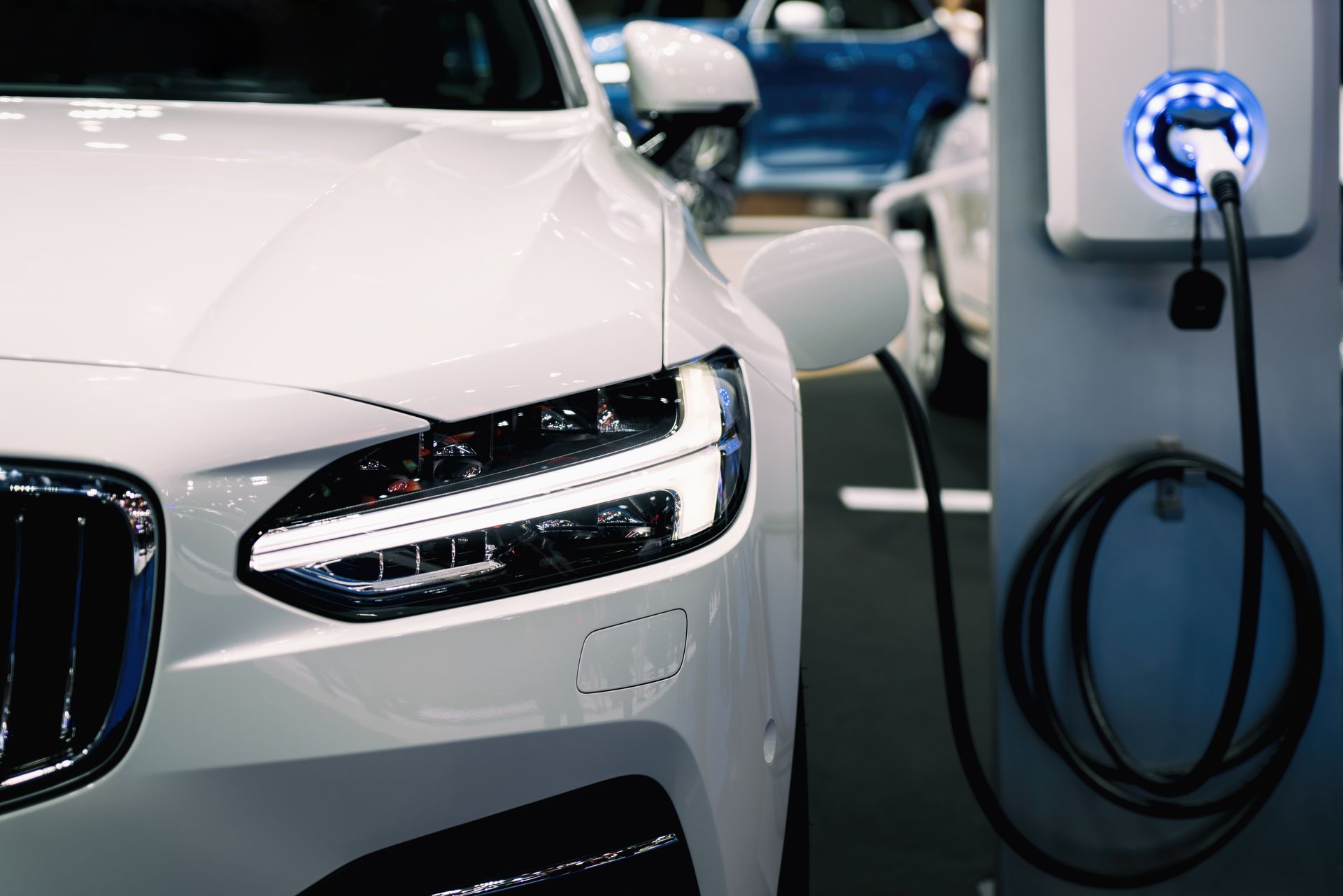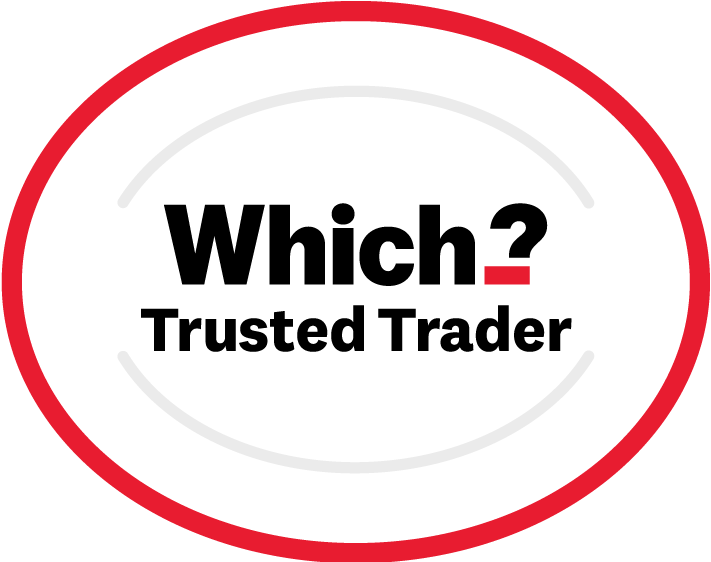
T: 01244 952496

Unveiling the Best Solar Panel Technology
Unveiling the Best Solar Panel Technology: Domestic and Commercial Applications in the UK
The UK is committed to renewable energy and has created ambitious targets to achieve net-zero emissions by 2050. As such solar photovoltaic (PV) systems are rapidly becoming a familiar sight on British rooftops. But for those considering the switch to solar power, a crucial question arises: what type of solar panel is best for my needs?
There are two main types of solar panels dominating the UK market: monocrystalline and polycrystalline silicon panels. We'll explore their advantages and disadvantages, suitability for domestic and commercial applications, and how to make an informed decision for your property.
Understanding Solar Panel Technology
Solar panels convert sunlight into electricity using the photovoltaic effect. Silicon, the most common semiconductor material, plays a starring role in this process. The way silicon crystals are arranged within the panel determines its type and efficiency.
Monocrystalline silicon (mono-Si) panels are crafted from a single, pure silicon crystal. This meticulous process allows for a highly ordered structure, resulting in superior efficiency in converting sunlight to electricity. Mono-Si panels typically boast efficiency ratings between 19% and 22%, meaning they can generate more electricity from the same amount of sunlight compared to other types.
Polycrystalline silicon (poly-Si) panels utilise multiple silicon crystals melted and cast together to form a wafer. This more affordable manufacturing process creates a less organised structure, leading to slightly lower efficiency (around 15% to 18%). However, poly-Si panels remain a popular choice due to their lower cost.
Key Considerations for Choosing Solar Panels
Beyond the core technology, several factors influence which type of solar panel best suits your application. Let's delve into the specifics for domestic and commercial settings.
Domestic Applications:
For domestic electricity needs, both mono-Si and poly-Si panels can be effective. Here's a breakdown of the key considerations:
Efficiency: Since roof space is often limited in domestic settings, maximising power generation per square metre is crucial. Mono-Si panels, with their higher efficiency, can deliver more electricity from a smaller area. This translates to potentially needing fewer panels to meet your energy demands.
Cost: Poly-Si panels offer a lower upfront cost, making them an attractive option for budget-conscious homeowners. However, the lower efficiency might necessitate installing more panels to achieve the desired output, potentially offsetting some of the initial cost savings.
Aesthetics: Mono-Si panels have a sleek, black appearance, often considered more aesthetically pleasing than the blue hue of poly-Si panels. This factor can be particularly significant for homeowners concerned about visual impact on their property.
Commercial Applications:
Commercial solar installations typically involve larger roof spaces and higher energy consumption. Here's how the panel types compare in this context:
Efficiency: Maximising energy generation is paramount for commercial users. The higher efficiency of mono-Si panels translates to a greater return on investment (ROI) over time. This is especially beneficial for businesses with high electricity bills.
Cost: While the upfront cost of mono-Si panels may be higher, the increased efficiency can lead to a quicker ROI. Additionally, many commercial properties have larger roof space, allowing for potentially cost-effective installations of mono-Si panels despite their slightly higher price tag per panel.
Durability: Both mono-Si and poly-Si panels are known for their longevity. However, some studies suggest mono-Si panels might have a slight edge in terms of degradation rate, potentially offering a longer lifespan in the harsh British climate.
Making the Right Choice: A Summary
Choosing the ideal solar panel type depends on individual needs and priorities. Here's a quick guide to help you decide:
- Prioritise efficiency and aesthetics? Mono-Si panels are the way to go.
- Looking for a budget-friendly option for your home? Poly-Si panels are a good starting point.
- Running a business and maximising ROI? Mono-Si panels are likely the better long-term investment.
Remember, a qualified solar panel installer can conduct a thorough assessment of your property's energy needs and roof space to recommend the most suitable panel type and system size.
Additional Considerations: Beyond Panel Type
While the type of solar panel is a key decision, other factors contribute to a successful solar installation:
- Solar panel brand: Reputation and warranty terms of the panel manufacturer are crucial.
- Solar inverter: This crucial component converts the DC electricity generated by the panels into usable AC electricity for your home or business.
- Installer experience: Choosing a reputable and experienced installer with a proven track record is essential for a high-quality system and optimal performance.
HSB Renewables: Your Partner in Sustainable Energy Solutions
At HSB Renewables, we are passionate about providing our customers with the highest quality products and services. Contact us for more information on Solar PV installation for you home or business.

Contact
HSB Renewable Energy are a renewable energy supplier and installer based in North Wales covering areas such as Wrexham, Conwy, Chester & more. Contact a member of the team today to book in your free, no-obligation survey, and to discuss your requirements with one of our experienced specialists.
© Copyright 2025 HSB Renewable Energy. All Rights Reserved.
HSB Renewable Energy LTD Unit 1, Pendle Court Evans Way, Shotton, Deeside CH5 1QJ
Opening hours: Monday - Friday 9am to 5pm | Phone: 01244 952496
Company number: 13290917 I VAT Registration number: 387715060
Registered in England and Wales

